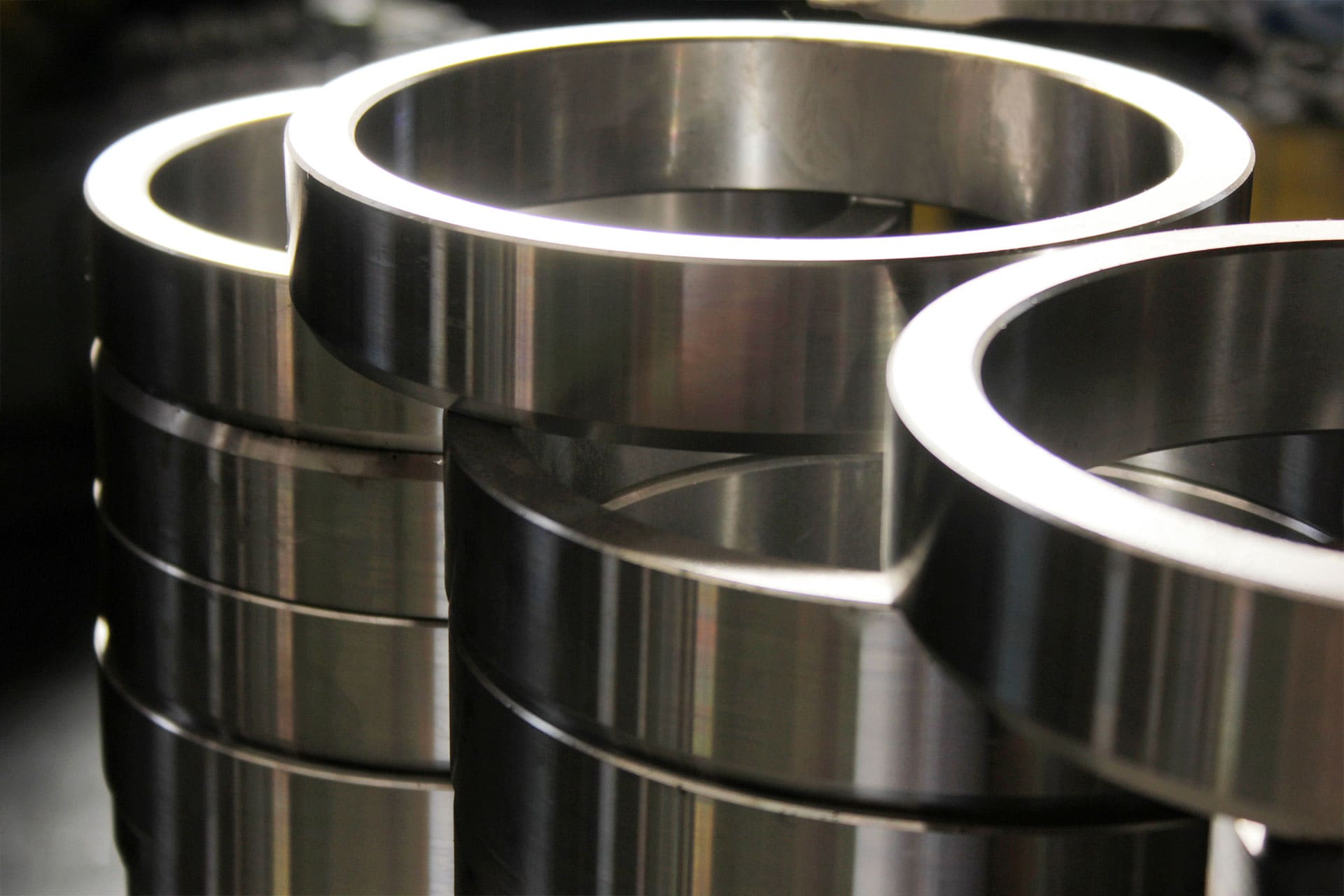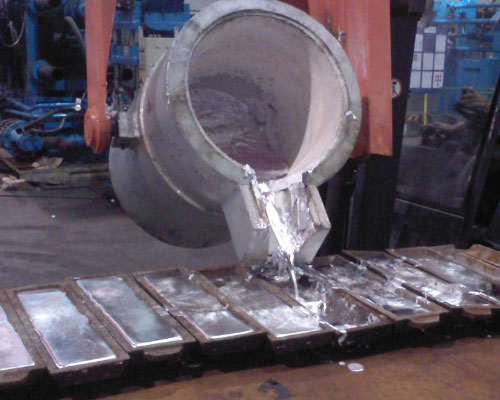Recognizing the Role of Aluminum Foundry in Creating High-Quality Metal Products
Aluminum shops are important in the manufacturing of premium steel items. They employ various casting methods, such as sand and pass away spreading, to achieve precision and toughness. With rigorous quality control measures in position, these centers guarantee that their products fulfill industry requirements. As sectors progress, the function of Aluminum shops continues to adjust. This questions regarding future developments and sustainability techniques that might redefine their influence.
The Aluminum Spreading Process: Technologies and strategies
The Aluminum spreading process has developed considerably, incorporating different techniques and innovations that improve efficiency and item high quality. Typically, approaches such as sand spreading and pass away spreading were primary; however, improvements have presented processes like investment casting and low-pressure die casting. These developments enable makers to accomplish elaborate styles and tighter tolerances, minimizing product waste and improving general performance.
The combination of computer-aided design (CAD) and simulation software program allows for even more precise modeling and testing, guaranteeing that possible issues are identified early in the production cycle. Aluminum Foundry. Additionally, improvements in alloy formulas result in improved mechanical residential properties and deterioration resistance
These growths not just simplify production but additionally promote sustainability by decreasing energy intake and exhausts. As the sector remains to accept new technologies, the Aluminum casting process stays an important part in producing top notch steel products that satisfy diverse market needs.
Applications of Aluminum in Various Industries
Light weight aluminum's convenience and beneficial homes make it a beneficial material throughout various industries. In the vehicle field, Aluminum is commonly utilized for its light-weight qualities, adding to improved fuel effectiveness and efficiency. The aerospace industry additionally benefits, as aluminum's high strength-to-weight proportion improves airplane design while preserving security requirements.
In building, Aluminum is favored for its resilience and resistance to rust, making it suitable for home window structures, roof covering, and structural parts. The product packaging industry leverages aluminum's non-toxic nature and recyclability, especially in food and beverage containers, ensuring security and sustainability.
Furthermore, the electric industry employs Aluminum for its outstanding conductivity in electrical wiring and transmission lines. The durable goods sector utilizes Aluminum in products varying from kitchen utensils to electronics, highlighting its versatility. Aluminum plays an important duty in improving functionality, efficiency, and sustainability across diverse applications.
Advantages of Utilizing Aluminum Over Various Other Steels
While numerous metals are utilized in various applications, Aluminum attracts attention because of its special mix of buildings that use several advantages over various other materials. Its light-weight nature substantially lowers transport expenses and power consumption, making it optimal for markets such as auto and aerospace. Aluminum's superb rust resistance improves toughness, extending the life of items and reducing upkeep requirements. Furthermore, it shows high thermal and electrical conductivity, making it ideal for electric and thermal administration applications.
The metal's pliability allows for intricate shapes and detailed styles, providing versatility in producing procedures. Furthermore, Aluminum is 100% recyclable without loss of top quality, advertising sustainability official source and decreasing ecological impact. Wisconsin Aluminum Foundry. These characteristics, integrated with its reasonably reduced price contrasted to various other steels, placement Aluminum as a recommended option throughout various sectors. Overall, the advantages of Aluminum add to its boosting popularity in the manufacturing of premium metal products

Quality Assurance Steps in Aluminum Foundries
Quality assurance procedures play a necessary duty in the Aluminum Foundry procedure, making sure that the final products meet extensive market standards and customer assumptions. These procedures typically begin with product examination, where raw Aluminum is assessed for purity and structure. When the casting procedure begins, temperature control is important; keeping optimal molten metal temperature levels stops defects such as porosity and shrinkage.
Furthermore, non-destructive screening (NDT) techniques, consisting of radiographic and ultrasonic assessments, are utilized to spot internal imperfections without damaging the castings. Aesthetic evaluations are likewise performed at different phases to identify surface flaws.
Adherence to well established high quality monitoring systems, such as ISO standards, is important for preserving consistency and traceability throughout the production process. Normal audits and worker training on top quality standards add to an overall culture of quality, ensuring that the products not only fulfill however exceed customer expectations in performance and resilience.
The Future of Aluminum Foundries: Trends and Sustainability
As the Aluminum Foundry market advances, emerging fads and a concentrate on sustainability are reshaping its landscape. Raising demand for lightweight and resilient products in fields like automobile and aerospace drives technology in Aluminum casting strategies. Advanced innovations, such as man-made intelligence and automation, are boosting production performance and precision while decreasing waste.
Sustainability is becoming an extremely important concern, prompting shops to implement environmentally friendly techniques, consisting of reusing Aluminum scrap and using sustainable power resources. The change towards round economy principles motivates foundries to lessen environmental effect while satisfying customer expectations for lasting products.
Furthermore, regulatory stress are pressing the sector in the direction of cleaner operations, cultivating cooperation between suppliers and environmental organizations. As these fads merge, the future of Aluminum shops will likely be characterized by a commitment to efficiency, sustainability, and high quality, ensuring their relevance in an open market.
Often Asked Concerns
What Are the Ecological Effects of Aluminum Foundries?
Aluminum shops add to ecological impacts through energy right here consumption, greenhouse gas exhausts, and visit this site prospective air and water contamination. In addition, mining bauxite for Aluminum can lead to environment destruction and dirt destruction, impacting local environments.

Exactly How Do Factories Guarantee Employee Safety Throughout Manufacturing?
Foundries carry out rigorous safety and security methods, including safety tools, ventilation systems, and normal training. They perform risk evaluations and keep safety requirements to decrease hazards, making certain a more secure working setting for workers throughout the production process.
What Certifications Should a Light Weight Aluminum Foundry Have?
An aluminum Foundry must have certifications such as ISO 9001 for high quality management, ISO 14001 for environmental management, and OSHA conformity for safety and security criteria. These accreditations guarantee adherence to sector regulations and dedication to high quality and safety practices.
Exactly How Does Aluminum Recycling Affect Foundry Procedures?
Aluminum reusing significantly enhances Foundry procedures by supplying a cost-efficient basic material resource, minimizing power consumption, and minimizing ecological impact - Aluminum Foundry. It likewise motivates sustainable methods, enabling shops to keep competition in a quickly developing market
What Prevail Flaws in Aluminum Castings?
Typical problems in Aluminum spreadings consist of porosity, contraction, inclusions, and surface area blemishes. These issues can arise from improper mold and mildew style, insufficient putting strategies, or contamination throughout the melting and spreading processes, affecting total item top quality.
